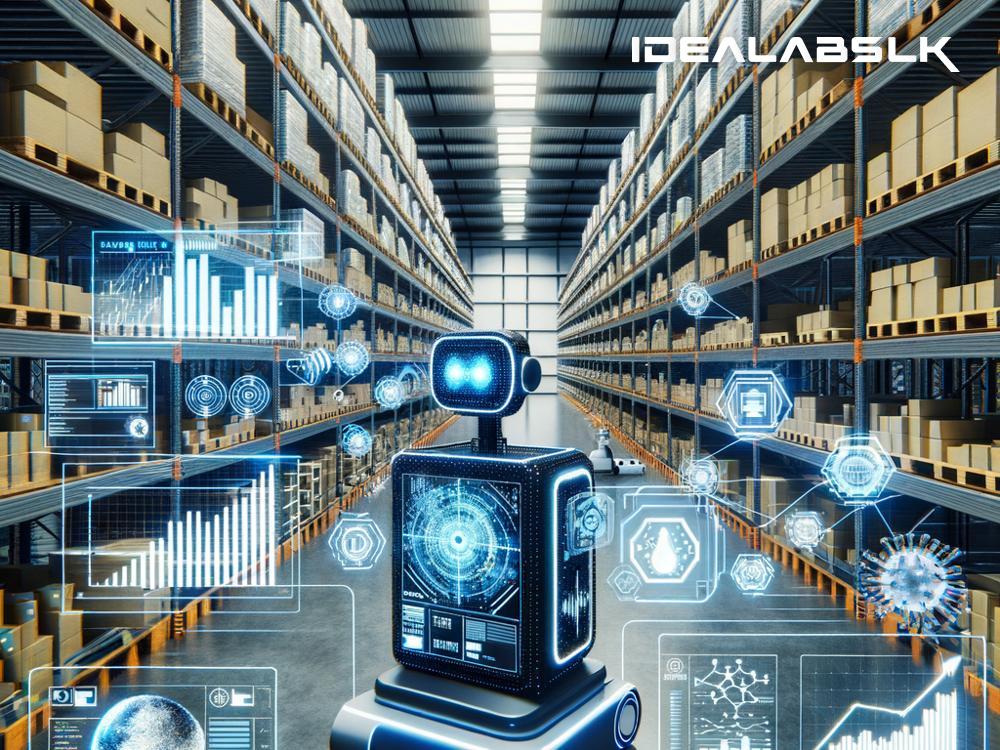Title: How Machine Learning is Changing the Game for Future Inventories
Introduction
Imagine you own a magic crystal ball that tells you exactly what product your customers will want, in what quantity, and at what time. Sound too good to be true? This is where machine learning steps into the picture, providing a glimpse into the future of inventory management. In a world that's swiftly advancing towards automation and intelligence, machine learning is set to dramatically transform how businesses manage their inventories in the coming years. Let's dive into how this technology is leading the charge in revolutionizing inventory management for the future.
Understanding Machine Learning
Before we delve into its impact on inventory, understanding what machine learning is, is crucial. In simple terms, machine learning is a branch of artificial intelligence (AI) that enables systems to learn from data, identify patterns, and make decisions with minimal human intervention. It's like teaching a computer to think and learn from experiences, much like a human, but at a lightning-fast speed and on a much larger scale.
Machine Learning in Inventory Management: The Game Changer
- Predicting Demand Like Never Before
One of the biggest challenges in inventory management is accurately predicting demand. Overestimating can lead to overstock and increased holding costs, while underestimating can lead to stockouts and lost sales. Machine learning excels in analyzing vast amounts of historical sales data, trends, and external factors like seasons and holidays, to predict future demand with remarkable accuracy. This means businesses can optimize their stock levels, ensuring they have just the right amount of inventory to meet customer demand without surplus or shortage.
- Automated Replenishment
Gone are the days when replenishment orders were manually calculated based on gut instincts or cumbersome spreadsheets. Machine learning algorithms can automatically analyze sales velocity, forecast demand, and even place orders with suppliers at the optimal time. This not only saves time but also reduces human error, ensuring that inventory levels are always balanced and optimal.
- Dynamic Pricing Strategy
Machine learning doesn’t stop at inventory optimization; it extends its capabilities to pricing strategies. By analyzing data on customer purchasing behaviors, competitors' pricing, and market demand, machine learning can recommend the most effective pricing strategy for each product. This dynamic approach to pricing helps in maximizing profits and clearing out slow-moving stocks efficiently.
- Enhanced Customer Experience
At the heart of every business is the customer experience. Machine learning helps in personalizing the shopping experience by understanding customer preferences, which can greatly influence stocking levels and product variety. By predicting what customers are likely to buy, businesses can ensure those products are readily available, fostering customer satisfaction and loyalty.
- Minimizing Waste in Supply Chains
Machine learning is an invaluable tool in reducing waste, especially in industries with perishable goods. By accurately predicting demand, businesses can order more strategically, significantly reducing the amount of unsold goods that go to waste. This not only supports sustainability efforts but also enhances profitability.
The Future is Now
The aforementioned impacts are just the tip of the iceberg. As machine learning technology continues to evolve, its potential to further transform inventory management is boundless. For instance, integrating machine learning with IoT (Internet of Things) devices can provide real-time inventory tracking and management across the entire supply chain, offering unprecedented levels of efficiency and accuracy.
Conclusion
Machine learning is not a futuristic concept but a present-day reality transforming how businesses approach inventory management. From forecasting demand to automating replenishment and enhancing customer experience, its benefits are clear. As we move forward, embracing machine learning will not be just an option but a necessity for businesses aiming to stay competitive in the dynamically changing market landscape. The future of inventory management is bright with machine learning at its core, promising a world where businesses can anticipate the future with confidence and precision. So, let’s welcome the dawn of a new era in inventory management, where machine learning leads the way towards efficiency, sustainability, and unparalleled customer satisfaction.

